🍃 Reciprocity: the interview
6 questions for Susie Mawhinney
Nature writer, n. A person who delights in paying attention, being astonished, and telling about it.1
“Writing about nature enhances the joy, the preciousness and fragility of all life forms, it is extraordinary, beguiling, terrifying too at times but whether it is astonishing in its detail or decaying around its edges, on days when obligations, worry and drudgery have paralysed me, it is always a balm.” ~ Susie Mawhinney
Welcome to Season 2 of the Reciprocity interviews. My inbox is full of treasure in the form of lovingly observed writing about place, encounters both wild and gentle, imaginative kinship and renewed reciprocity. These thoughtful, talented writers kindled in me the desire to learn more about them.
Today’s guest, lives in a half renovated, ancient farmhouse in a tiny hamlet, nestled on the side of a hill, in a lesser known department called the Aveyron in SW France. She has been there for 20 years.
I first encountered her marvelous writing and photographs via , though many of my friends here are devoted readers. Her posts are delicious immersion in a breathing landscape fringed with wild oats and overflown with pine martens and kestrels feeding their young.2 She is such a gifted storyteller, it’s not uncommon to be moved to amazement, tears, and wonder in a single paragraph. Her photos reveal an inquiring, appreciative perspective, at once painterly and closely detailed. Susie’s generosity to share her love of a special place is rivaled only by her artistry with word and image.
A hill and I is Susie’s story; the haphazard days of her life in pictures and words as she wanders enchantedly and often deliriously through the perpetually changing seasons.
Why are you drawn to nature writing?
With the exception of two misguided years of my sixty on this endlessly beautiful sphere we inhabit, I have lived within the extraordinary arms of nature cradled on a hill. Here in France, on south facing slopes, I nestle amongst ancient chestnut, beech and oak with a view of other hills stretching far across the Massif Central to now dormant, volcanic mountains of the Cantal. In England I passed long halcyon childhood days, wrapped cosily within the gentle sweeping undulations of Sussex hills. Then in Derbyshire and Eire, wildly free having left family for the first time, navigating dry-stone walls, mystical crags and monoliths, waterfalls and crystal clear peaty pools. Each has had their own alluring grace. Each has rolled into shaded valleys beckoning with secrets from below. Whichever direction I gazed upon, nature was visible, tangible, and intriguing, glorious and graceful, galvanising my every day.
I grew up in South East England in a tied cottage on a sheep farm, on the furthest outskirts of a once sleepy West Sussex village3. We were three girls, sent—willingly, mostly—into the great outside at every opportunity. We fished with strings tied to sticks in streams, sang with the music of their babbling waters. In woodlands filled with ancient yew trees we talked to ghosts, scaring ourselves stupid. We helped with golden harvests, returning home with our legs scratched to ribbons from the stubble, looked after orphan lambs, rode horses bare-back, our faces and arms sunburnt, bare legs touching glistening coats. We invented games. We made camps on the slopes of bracken where we stored unusual finds—pottery, lambs tails, old bottles, any amount of old rusty tools, polished stones from the millennia of water flowing over them in the stream—we kept them in secret places and hung signs ‘NO GROWN-UPS ALLOWED’ on every entrance. It was an idyllic heaven on earth. I loved every second.
In my early twenties, from Sussex I moved to the hills of Derbyshire where I met my now husband, then, moved again to Eire to renovate and live in a traditional small farmhouse at the foot of the sacred hill of Uisneach. Thirteen years later, I moved again, this time to South West France into—eventually—a much larger, even more draughty old farmhouse to live on the wild-side of a forgotten hill amongst ancient chestnut groves and the once bustling vine terraces in the west of the Aveyron. Twenty years later I am still here, still renovating, still beguiled and wild.. I have a tiny flock of sheep, a few chickens, a vegetable garden and a vast incurable love for the hill I live on called Le Paradis. With all its wild flora and fauna, it has become my forever muse, part of the very bones of me.
All this to say, I have lived within and have been surrounded by nature’s wonders from a very young age, it accompanied me, soothed me, enticed me. Now, it is the softest part of who I am. Nature, in the written form, is simply a progressive extension of a lifelong passion.
“How can I number the worlds to which the eye gives me entry? - the world of light, of colour, of shape, of shadow: of mathematical precision in the snowflake, the ice formation, the quartz crystal, the patterns of stamen and petal: of rhythm in the fluid curve and plunging line of the mountain faces. Why some blocks of stone, hacked into violent and tortured shapes, should so profoundly tranquillise the mind I do not know.”
Nan Shepherd describes it far more eloquently!
How does writing about nature affect you, in your work or personal life?
It is almost impossible to untangle the considerably numerous and beneficial effects writing about nature has wrought in its wake. I am not a scientist or a homeopath, in fact I have no ‘ist’ or ‘ath’ qualifications at all but I learn. Every day something astounds me, is capable of captivating and astonishing me like an endless enchanting film.
Keeping a journal has been habitual since childhood. There have admittedly been gaps when life overwhelmed, where the physical details of my good fortune—because it has always been—were lost in the chaos of renovations and less than zero finances and health issues and bringing up two children—mostly in a foreign country—although, and I was perhaps slow to grasp its full significance, the process of writing soothed the fiasco’s, the chaos, it was transitive in the unravelling of the woven magic and awe stitched, albeit sometimes latently, into realisation. We are so often disorientated, every day necessities, life and all its loudness are demanding, nature isn’t. The benefits of nature’s vast and diverse healing and calm found, often simply by melding into the myriad, extraordinary offerings are part of the core of me, of us all.
Writing about nature enhances the joy, the preciousness and fragility of all life forms, it is extraordinary, beguiling, terrifying too at times but whether it is astonishing in its detail or decaying around its edges, on days when obligations, worry and drudgery have paralysed me, it is always a balm.
While outside, have you ever experienced feeling small, lost or in danger?
Lost? Often… I love the wilderness, the feeling of being elsewhere, nowhere, a place I don’t know, I lose myself deliberately, as regularly as life allows, I call this adventure!
Small too, often, but never more so than on the night of 15 -16 October 1987.
Ironically, this was during one of my misguided years, when I had forgotten my journals, even the hills and the trees, when I lived one street up from the sea-front in Brighton.
On the night when The Great Storm battered England I had driven the 25 miles home along the busy, then, A23 in the densest fog I had/have ever known. Traffic crawled, sometimes barely moving, the entire journey was a guessing game through air so thick and still it was suffocating even inside my old VW Beetle. Heavy, impermeable curtains were drawn over all that had become familiar leaving nothing but an eerie, grey, silence.
The storm began just before midnight, not slowly gathering strength but instantly wild, the noise was an indescribable howl as nature’s full destructive force blew in off the English Channel, exploded through the streets and lanes in a furious frenzy. Glass could be heard shattering, everywhere, almost instantly. I watched, unable to move—despite the obvious dangers of standing anywhere near a window4—as the seafront deconstructed before me. Everything and anything that wasn’t bolted or battened down—and many things that were— was being catapulted with such manic, unimaginable violence in every direction; skylights were ripped from rooftops, chimney stacks fell, whole roofs blew off, the steeple on the church opposite tumbled into the street below, cars were whipped up and turned over, street signs, lamp posts were found streets away, everywhere I looked, the carnage was inescapable.
I will never forget the devastation of those hours spread out in thousands of distorted and broken pieces in every street the following morning. I will never forget the ashen, ghostly faces of the people I passed.
I will never forget the heartbreaking sight of four thousand trees broken or uprooted on the estate where my parents lived when I could finally reach them four days later.
Yes, I felt small.
In danger, only once; you can find that story below:
What’s a favorite memory of nature from your childhood?
Hmm, my childhood, what a blissfully bohemian bounty of memories I have to choose from! So many nostalgic fragments curl their fingers around my heart it is almost impossible to choose but one. Walking the ridges of freshly ploughed fields on a misty morning with my father, gathering wild fruit on summer’s days with my mother, gorging on the sweet sticky juiciness… making jam on an old range afterwards, having the run of acres and acres of fields and lanes and woodland, the secrets discovered, all are still vivid.
One day we moved from town to country–a day that I never understood the significance of at the time though it was that which almost certainly wrote the script for the rest of my life– from a first-floor town apartment with no garden or balcony, not even an occasional dandelion wish floating in an open window, to a tied cottage on a small farm. I was six years old. At such a tender age it seemed as if in a matter of hours someone had woven a thousand new threads of brightly coloured shimmering thread into my life; I had a garden and butterflies and bees and trees, and sheep (sheep!) in the fields which gave me dozens and dozens of acres to run in. There were streams with fish in and woodland, all bewitching curiosities to a child who craved adventure and discovery. To this wild child, who had known nothing but streets and shops and people, it felt like paradise. That day shaped me, I remember every second.
What do you hope for, for your writing?
Any belief that my notes and writing are anything more than they are would be detrimental to every joy and calm they give. I have no ambitious project or false hope other than to write to share my daily findings with anyone kind enough to read and to benefit those less fortunate in the place they or forced to live but in need of feeling closer to nature.
During the long months of confinement during the Covid 19 pandemic I felt an enormous, almost debilitating sadness and empathy for every human being who had little or no opportunity to benefit from nature as I did on a daily basis. The profound guilt of loving every day of the months we were confined, when I didn’t have to work, yet continued to receive a wage, when I walked miles without fear of restrictions when others couldn’t, weighed so heavily I searched for a way to share my good fortune. I posted hundreds of photographs with uplifting captions to Instagram Stories in the hope they would bring a little light to the locked-in days of those who felt imprisoned by the unforeseen circumstances we were experiencing. Many people, hundreds, from every corner of the world sent messages of thanks.
My hope is still, just to bring a smile to someone who needs a nature fix!
A writer or other creative artist who makes you hopeful for humanity and the earth.
Any writer that speaks with passion about wild places and climate and change and the nature of life, the effects we have wrought upon this beautiful planet, how best we can help to understand that which must happen, if not to reverse, then at least slow down the damages, give me hope!
Here on Substack there are many, I am constantly enthralled by the knowledge and wisdom shared here, both beauty and sadness captured in words that astonish always, I mention but a few,
, , , , , , , , , —this list really is endless…Other writers include Peter Wohlleben, The Hidden Life of Trees —actually I’ve just re-read this book—it is never too far from my reach and The End of Eden by Adam Welz - an exquisite and haunting, eye opening masterpiece as well as an elegy for creatures lost to climate change. Robert Macfarlane and Nan Shepherd and dear Mary Oliver who have each in their different ways, over many years, given me a deeper love and understanding of all of nature. Others, Barbara Kingsolver, Robin Wall Kimmerer guide constantly. Again the list is endless and ever growing. I hope it will continue to do so.
Each season, we donate 30% of paid subscriptions to a worthy environmental cause. This season, it’s Indigenous Climate Action. They envision a world with sovereign and thriving Indigenous Peoples and cultures leading climate justice for all. Track past and current recipients here.
What did you enjoy most about this interview? I’d love to hear from you. Or share it with others by restacking on Notes, via the Substack app. Thanks!
Notes and links
If you’d like to participate in this interview series, please DM me on chat, or reach out via email: gabrielli-dot-julie-at-gmail. Find previous interviews here.
For more inspired nature writing and artwork from the best of Substack, check out the articles in our final edition of NatureStack journal.
In further service to Substack’s nature writers,
curates this lovely directory of nature-focused writers:thanks, Mary Oliver
In 2012, many years after I left, Balcombe was the centre of a fracking protest which hit national news. Despite enormous opposition the West Sussex County Council granted permission to Cuadrilla to carry out the tests proposed. The Frack Free Balcombe Residents’ Association (FFBRA) took the protest to high court, They were overturned but were given rights to appeal, the protest continues.
The following morning every window in every building along the seafront had been blown inside.




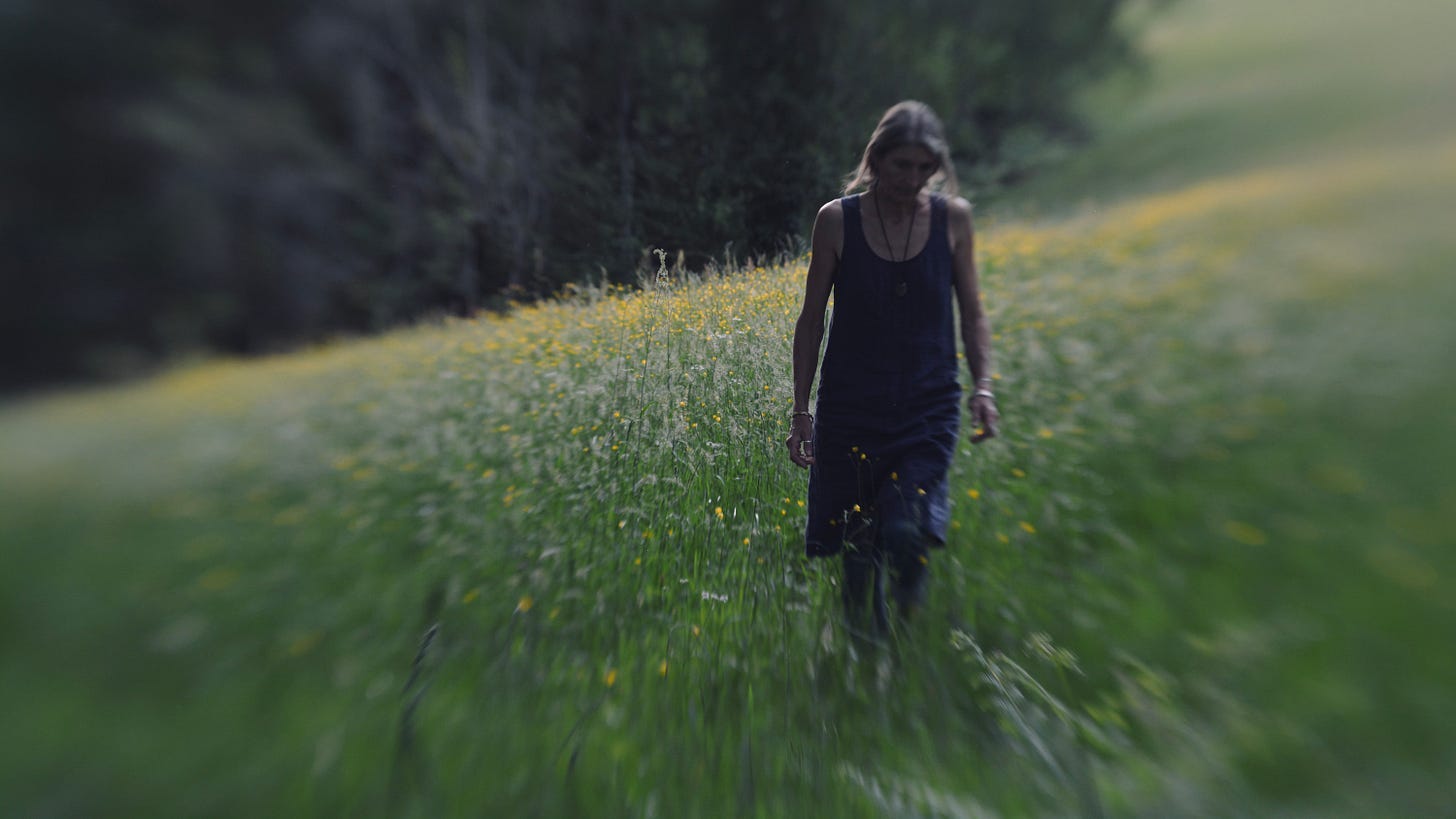
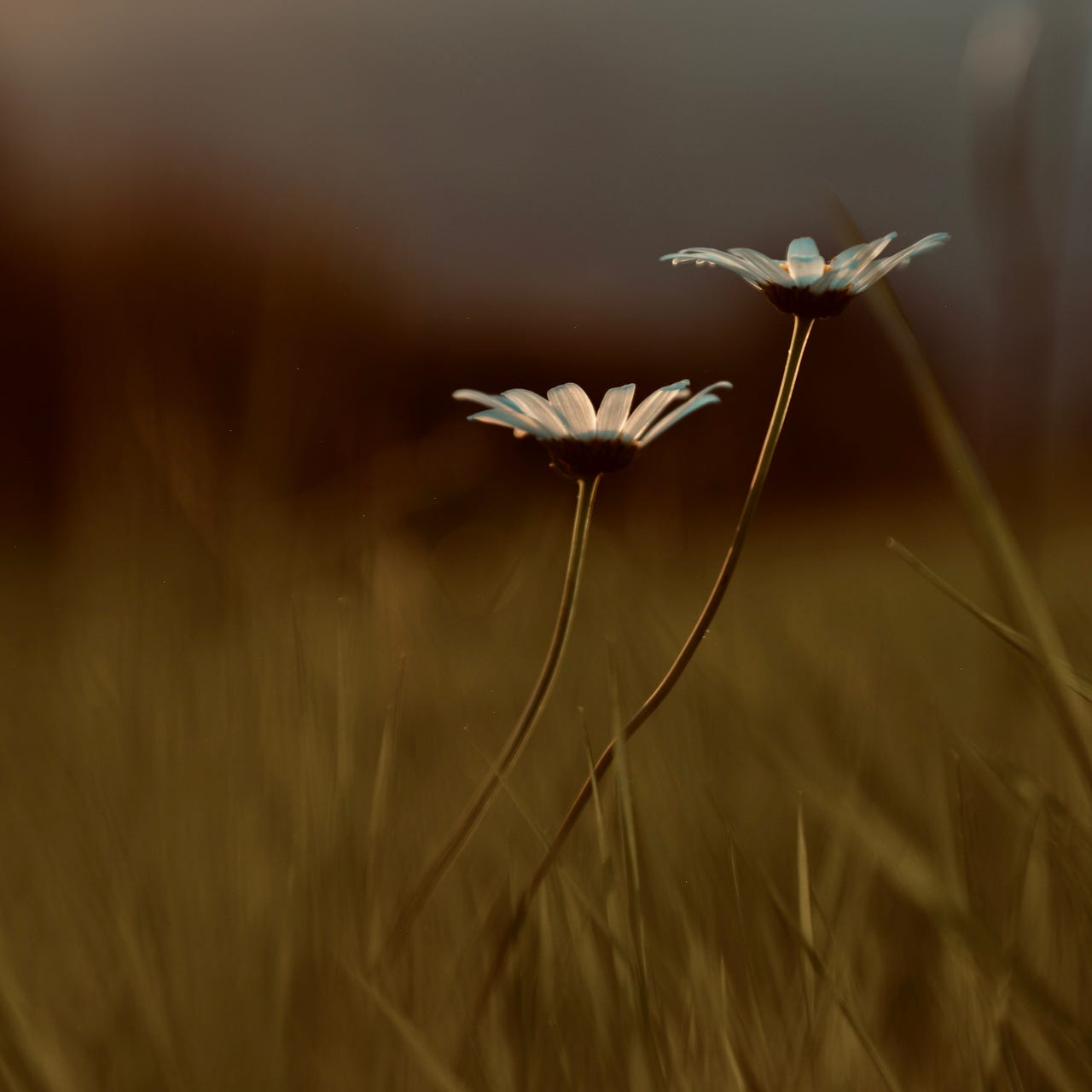
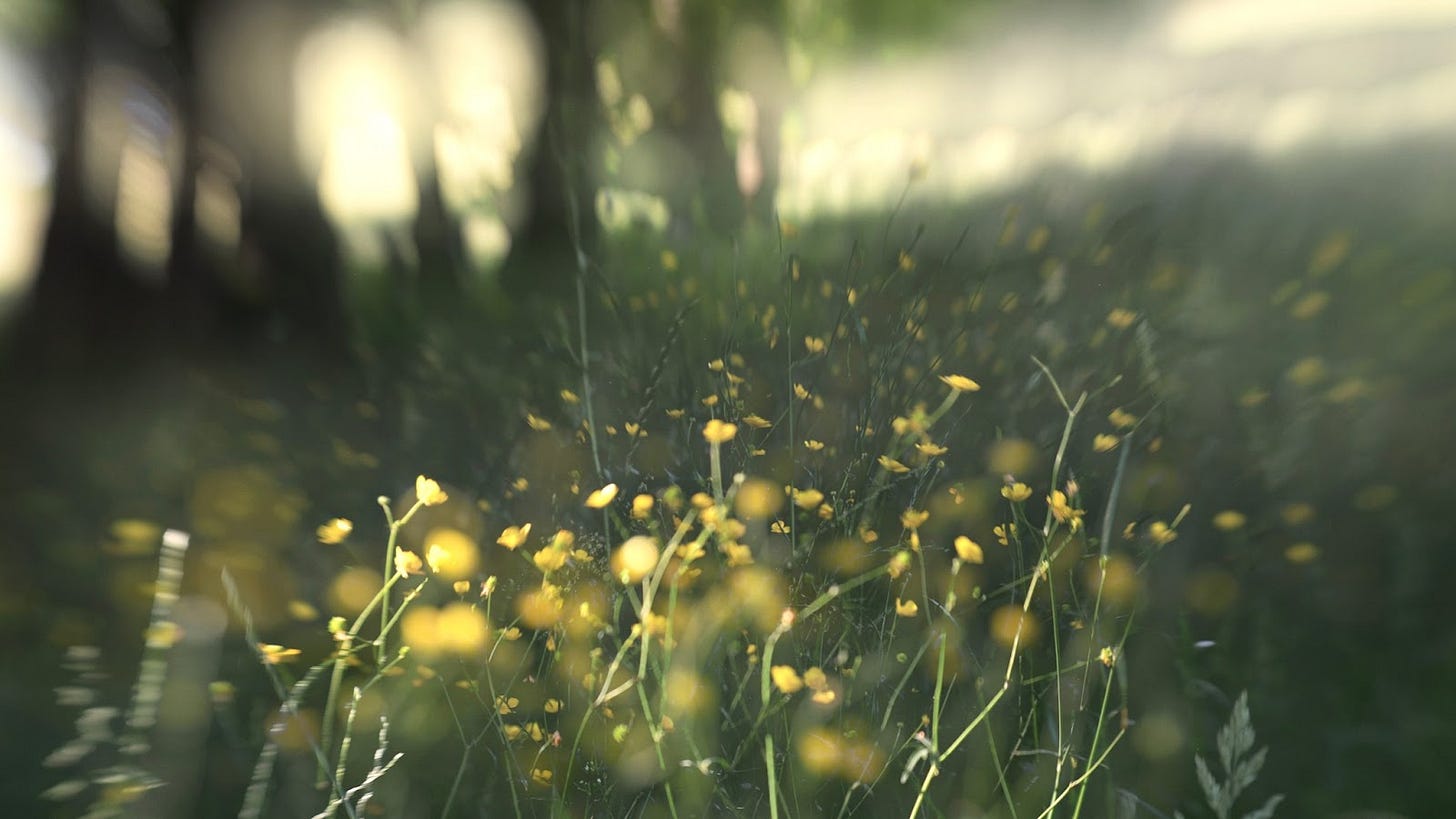

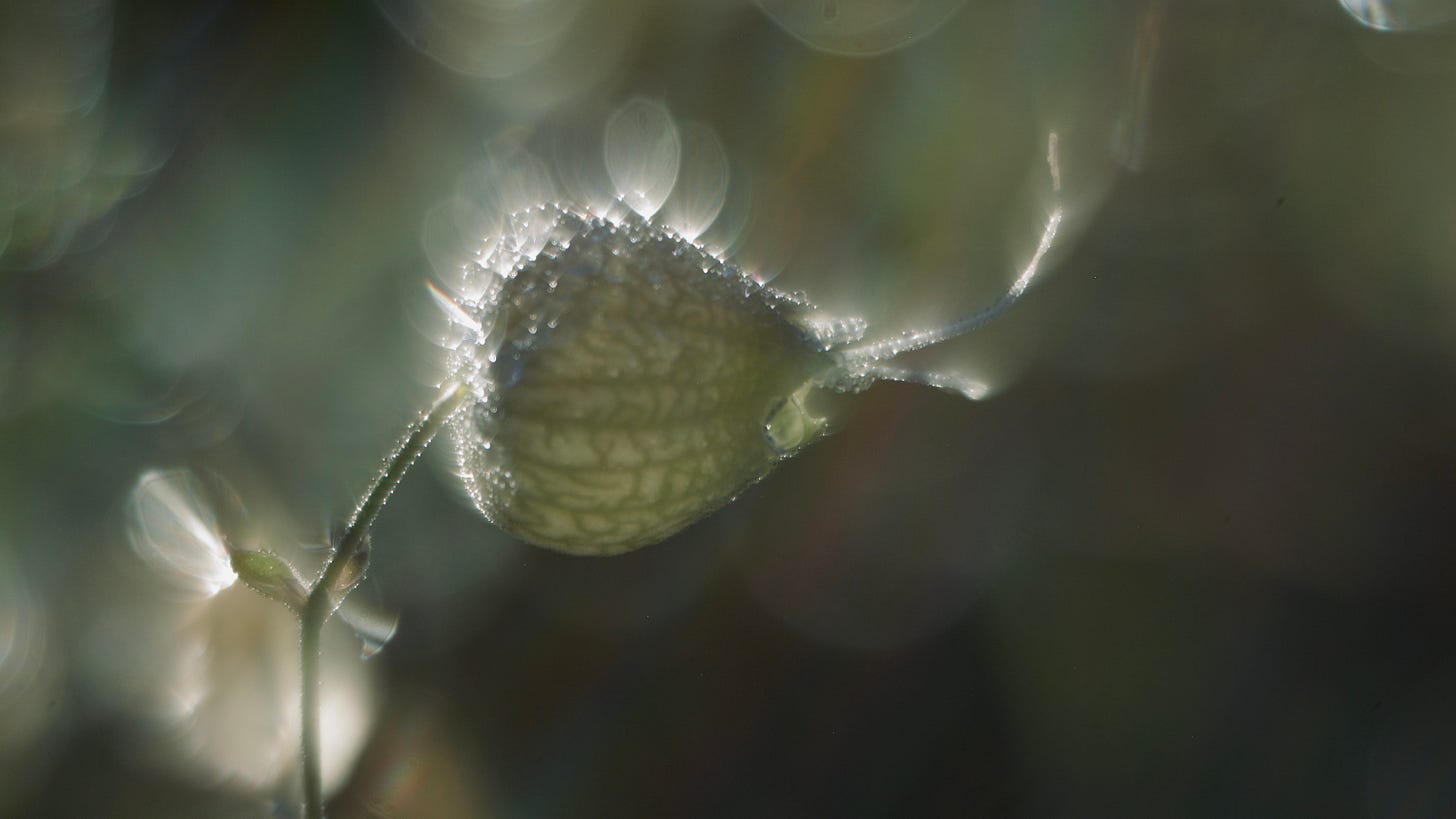
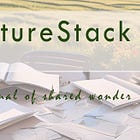


Dear Julie, for inviting me to join your series '6 Questions' on Homecoming for which I feel a huge honour to be included with so many others, all of whom have either inspired or encouraged me to continue, my most humble thanks.
I hope you don’t mind Susie, I am borrowing words, only two, I promise. Because you say it better than I ever could.
There is a woman who lives on a hill called Le Paradis far far away, across an ocean. Sharing her life with such “alluring grace”, words spill from every story in beautiful watercolors and we cannot help but want to be part of the painting.
Julie ,this is the first time I have been here for your Reciprocity interviews, Susie is a perfect choice for Homecoming. Great questions!